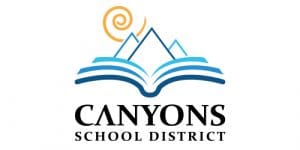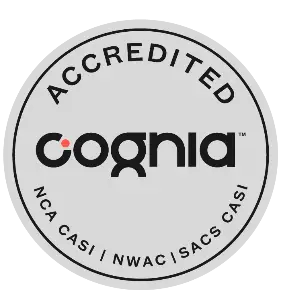On Monday, Aug. 19, tens-of-thousands of students will file into Canyons District classrooms with fresh hopes for a successful school year. They’ll accept new challenges and celebrate new triumphsand they’ll do it together, secure in the knowledge that school is a place where all learners are welcome, respected, supported and safe.
Such is the commitment made by Canyons District schools, and the promise behind new supports being put into place to help students navigate modern pressures and develop the confidence and character traits that are crucial for success in life and school. Over the past two years, the Board of Education has invested in the hiring and training of psychologists, social workers and counselors for every school. Starting this fall, and over the next few years, schools also will be rolling out a new, evidence-based social-emotional learning curriculum.
The idea is to “be systematic in our approach” to supporting our teachers and staffnot just counselorsin building strong connections with students and talking to them about problem-solving, building relationships and resolving conflicts, CSD Board President Nancy Tingey explained Thursday to 1,000 Utah educators gathered for a symposium on social-emotional learning in downtown Salt Lake. “It’s really about creating the right conditions for teaching and learning.”
Schools have always worked to maintain environments where children feel connected and safe to raise their hands and reach out to new friends, and social-emotional learning is catching on as a proven approach for achieving that. 
Having evolved from “character or civic education,” it’s building momentum alongside a growing body of research supporting its use, says Utah’s State Superintendent of Public Instruction Sydnee Dickson, who also spoke at the symposium. “We know more about brain research than we ever have before, and social-emotional learning is part of that.”
Whatever the cause, from the omnipresence of social media to increasingly competitive college admission standards, children today are more stressed and anxious than ever. In a recent Pew survey, 70 percent of teens say anxiety and depression are major problems among their peers.
“The issues we face are complex,” says BJ Weller, Director of Responsive Services, which oversees student supports. “But our focus is simple: helping students achieve academically. The fact is, students can’t excel at school if they are anxious, worried, fearful, depressed, or experiencing trauma.”
Weller invites parents to become acquainted with the counseling professionals in their schools and familiar with the resources available to assist students and their families.
Canyons District has embraced a “blended model” for providing supports. “Recognizing these professionals have different, yet equally important skill sets, we’ve worked hard to provide every school with at least one counselor and/or one social worker or school psychologist,” he says. Secondary schools have counseling centers to help guide students not just toward high school graduation but also to having a healthy outlook on life. School nurses also are a part of helping students feel well enough to learn at high levels.
The “Second Step” curriculum that Canyons is adopting is endorsed by the U.S. Department of Education and the Collaborative for Academic, Social and Emotional Learning (CASEL). It’s lessons are designed to help students from kindergarten to eighth grade manage emotions, solve problems in a positive way, demonstrate empathy, and focus during class. Second Step makes sample lessons and family resources available on their website for parents to explore.
Not only are trained staff members available to aid students, but Canyons was among the first school districts in Utah to roll out access to a mobile app text-and-tip line called SafeUT. This is available for students and parents to use if they need to immediately report a concern, be it about a student’s mental, social or physical well-being. Access to this app, which provides all-day and all-night real-time access to school administrators and licensed clinicians at the University of Utah’s Neuropsychiatric Institute, is available to all Canyons school communities.
CSD’s Responsive Services also maintains and online library of tools for parents and educators about a range of topics from suicide and drug- and alcohol-prevention to tips about how to talk to children, adolescents about traumatic events.
Canyons School District Resources:
Crisis Prevention and Intervention
Suicide Prevention
Bullying Prevention Tips
Drug and Alcohol Prevention Resources
Preventing Gang Involvement
Crisis Services
Canyons District Family Services
Community-Based Counseling Services
LGBTQ+ Resources
Parent Education Services




